label
Latest

Twitter is also labeling tweets from state media outlets in Belarus
The company says it's to 'better surface credible information surrounding the war in Ukraine.'

All Twitter bot accounts can now include a label to show they're automated
The company says the label will help other users figure out which accounts to follow and interact with.
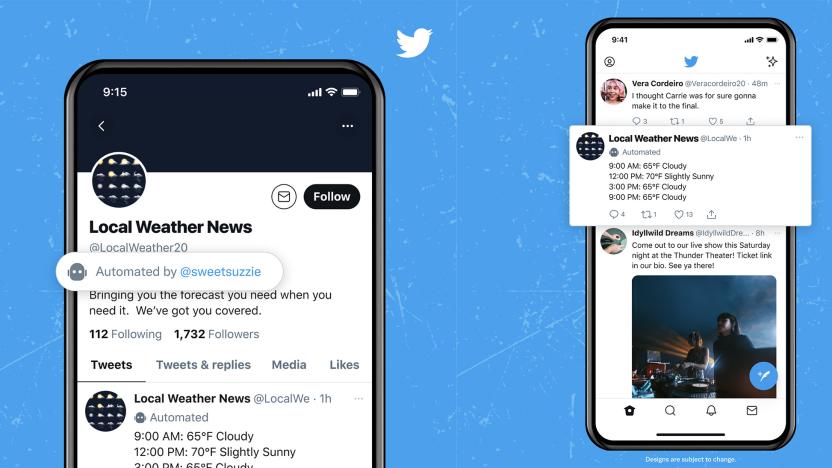
Twitter tests a way for accounts to let people know they're bots
Twitter is testing a new label that lets automated bot self-identify as such in their labels.
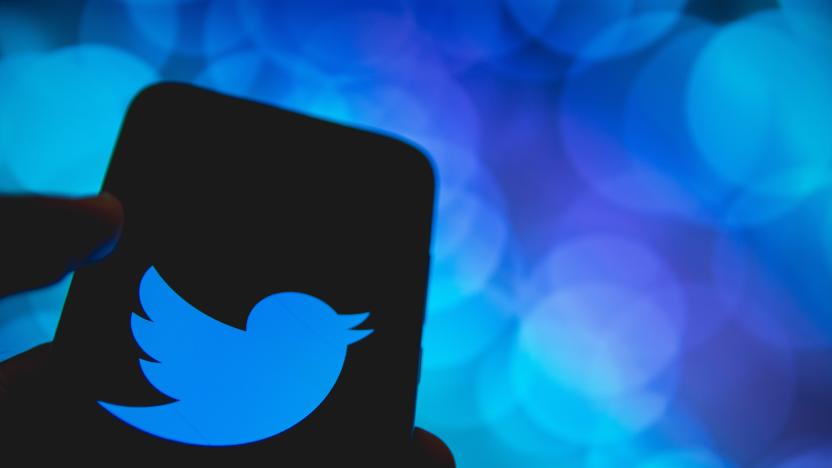
Twitter is developing more granular misinformation warning labels
Twitter is developing a trio of new misinformation labels as part of its battle to expose falsehoods.
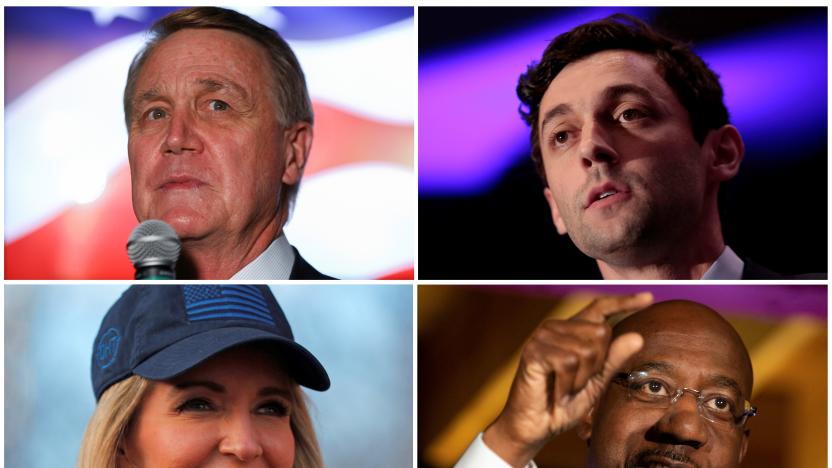
Twitter labeled a forecaster's Georgia election tweet without controversy
Twitter labeled Dave Wasserman's call of a Senate seat victory by Raphael Warnock over Kelly Loeffler as coming in without corroboration from other sources, and Dave Wasserman agreed.
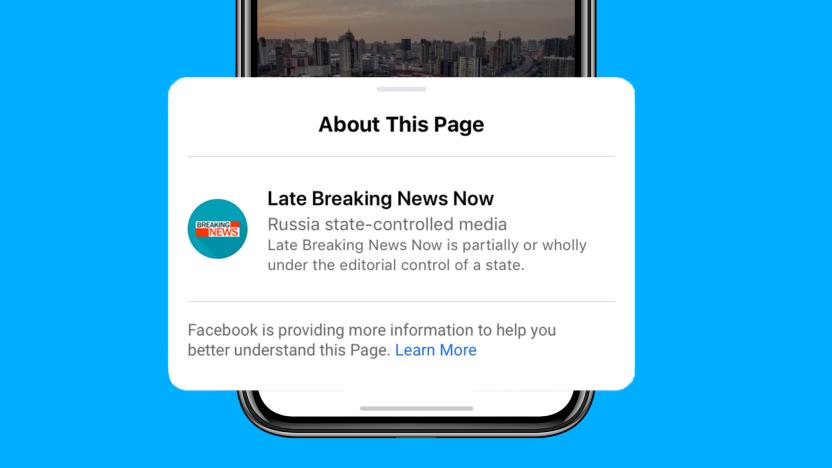
Facebook finally delivers on its promise to label ‘state-controlled’ media
Beginning today, Facebook will label media outlets that are wholly or partially under the editorial control of their government.
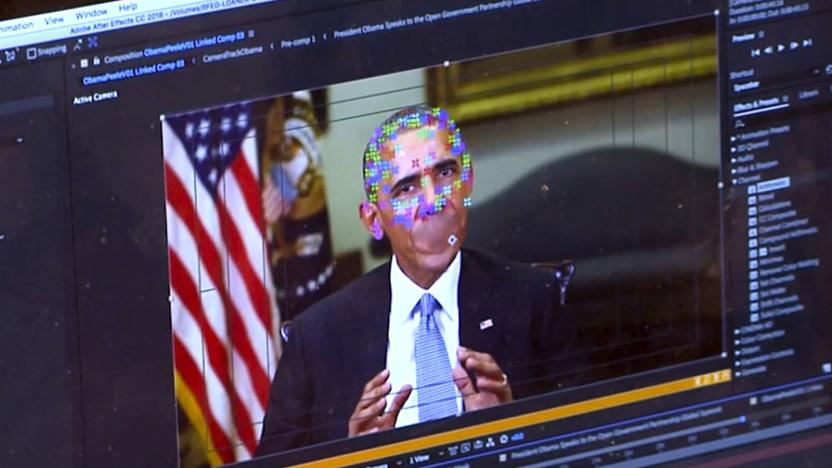
Twitter bans deepfakes that are 'likely to cause harm'
Twitter just released its new rules for handling synthetic and manipulated media. The company says you can no longer "deceptively share" deepfakes that are "likely to cause harm," and it may label Tweets containing deepfakes to help people understand what's real and what's been altered.

Chrome may shame slow-loading sites with 'speed badging'
While there are many, many worse things going on in the world than waiting far too long for a website to load, that's bound to tick off even the most patient of us. Google's not standing idly by, though, as it might start naming and shaming sites that take forever to display their contents in Chrome.
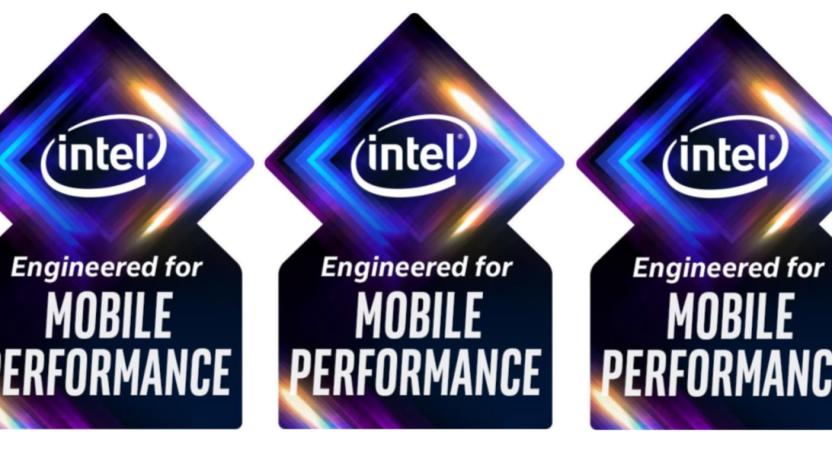
Project Athena gets its own version of the 'Intel Inside' badge
Intel teased Project Athena at CES at the start of this year, then in May the company revealed what the program really hopes to achieve: super long battery life, fast charging and 5G all packaged neatly into ultra slim, lightweight devices aimed at today's "mobile go-getters." Now, the company has unveiled its visual identifier, which will indicate which laptops meet Athena's high specifications.

Twitter may label notable tweets that violate its terms
Twitter is considering a label for tweets that violate its rules but believes should remain on the platform because they're in the public interest. Twitter's head of legal, policy and trust Vijaya Gadde said in a Washington Post interview such a label could "put some context around [a tweet] so people are aware that that content is actually a violation of our rules and it is serving a particular purpose in remaining on the platform."

Facebook now flags fake news
After taking heat for months in the run up to the presidential elections, Facebook has been cracking down on fake news spreading through its social network. The company recently began using third-party fact-checkers and gave its users the ability to manually report fake news posts. Late last week, the company announced that it will soon include "Disputed" labels for these false reports as well.

Google explains why Palestine isn't labeled in Maps
Services like Google Maps have not just functional but symbolic importance, as a bug on a map of Israel has proved. A Gaza City journalism group spotted a change in the way Google represented Palestine on a map of Israel, causing outrage on both mainstream and social media in the Middle East. "[Our group] condemns the crime carried out by Google in deleting the name of Palestine, and calls for Google to rescind its decision and apologize to the Palestinian people," the Forum of Palestinian Journalists said in a statement.

Smart liquor bottles can keep tabs on your bourbon collection
A close friend of mine returned home from vacation to discover his house sitter -- his brother-in-law -- had downed an entire bottle Pappy Van Winkle 20 year bourbon. A tragedy, really. However, if an alcohol tech duo in Europe has its way, keeping tabs on your stash while you're away could become much easier. Diageo (an alcohol company) and Thinfilm (a printed electronics maker) teamed up to create a "smart bottle" that serves up cocktail recipes and can detect when a bottle has been unsealed. Thinfilm's OpenSense label sensor tags pair with a smartphones NFC chops to run the system that's also capable of tracking supply chain, in-store stock and promotional offers for brands and retailers. The pair constructed a prototype Johnnie Walker Blue bottle that'll be on display at next week's Mobile World Congress in Barcelona, but there's no word on when a similar solution could make its way to your local liquor store. Maybe the final version will be able to determine how much is left in a bottle, keeping sneaky house quests at bay.

The E-Label Act may rid your future gadgets of FCC logos
Let's try something really quickly: pull your phone out, flip it over, and maybe squint at it a bit. Chances are you'll see a series of FCC-mandated pictograms emblazoned there, little images you've probably never paid attention to before. If US senators Deb Fischer (R-Nebraska) and Jay Rockefeller (D-W. Virginia) get their way though, those curious icons may soon become a thing of past. Instead, the pair wants to replace those etchings with more informative digital equivalents that users can peek at if they so chose. Alas, your gadgets might not be completely clean if the bill passes -- there are still those pesky CE labels to gaze upon.

Amazon rumored clinching major labels for cloud music rights, iTunes Match feels the heat
When we last checked in, Amazon was thought to finally be pushing for full music rights in its Cloud Drive and Cloud Player services. It might be a smooth operator at the negotiating table: subsequent tips to CNET maintain that the top four major labels (a currently-independent EMI as well as Sony, Universal and Warner) have all signed deals that will let Amazon offer the same scan-and-match music downloads and streaming as Apple's iTunes Match. The pacts would let Amazon offer access to every song a listener owns without having to directly upload each track that wasn't bought directly from Amazon MP3. Aside from closing a conspicuous gap, the deal could end a whole lot of acrimony from labels who were upset that Amazon preferred a free-but-limited service over having to charge anything. The online shop hasn't said anything official yet (if at all), but any signatures on the dotted line will leave Google Music as the odd man out.

Raspberry Pi faces distribution troubles over CE certification
Raspberry Pi hit another snag in distribution this week, though the company seems optimistic that shipments of its long-awaited Linux PC won't be dramatically affected. The issue centers around two companies -- RS Components and element14/Premier Farnell -- that have confirmed they won't distribute the device until it's been anointed with the CE label. Raspberry Pi had previously argued that its PC is not a "finished end product," and that it, like Beagleboard, could therefore be distributed without the CE mark. Its distributors, however, disagreed. As a result, the team is working to get their computers CE-compliant "as soon as humanly possible," and are already pretty confident that they'll meet category A, and perhaps even category B requirements. They're also working closely with the UK's Department for Business, Innovation and Skills to better understand the standards to which non-CE products like Beagleboard are held. No word yet on when RS and Farnell might issue a verdict, but the Raspberry Pi Foundation says it'll let us know as soon as they do.

Turntable.fm inks deals with major music labels, promises 'no traditional advertising'
Turntable.fm may not be as much of a household name as some of the other music streaming services out there, but it's certainly doing its best to catch up. After launching in June and releasing an iPhone app in September, the company has now taken another step toward the big leagues, thanks to a quartet of high profile licensing agreements. As Billboard reports, Turntable.fm has officially inked licensing deals with all four of the major music labels, confirming rumors that had been circulating last week. Founders Billy Chasen and Seth Goldstein made the announcement at SXSW yesterday, during their Turntable.fm panel. Details on the terms remain fuzzy, but both sides are already gushing over each other, with the labels seeing the service as a potential platform for talent, as well as a tool to drive purchases and subscriptions. Chasen, in return, lauded the labels for being cooler than he expected. "We felt that from the get-go the labels were absolutely different from what I'd been led to believe," he explained. "They gave us a lot of time and attention. Compared to their user base, we're a tiny service in the broad scheme of things." It remains to be seen whether Turntable.fm can join the ranks of Spotify and its ilk, but according to Goldstein, the service should stand out in at least one respect. "We're really focused on how we can improve the user experience, and we want to associate these brands as bringing value and talent for our consumers," the co-founder said, adding that the site won't feature any "traditional advertising."

Braille-It Labeler brings low-cost printing, 'sightless construction' to the blind
It's certainly not the first Braille label printer we've seen, but Ted Moallem's Braille-It Labeler does bring notably unique element to the table -- namely, "sightless construction." Presented at this year's A Better World by Design conference, this compact device allows blind or visually impaired users to print out adhesive labels in Braille, thanks to a simple six-button design that's compatible with any Braille alphabet. Made out of relatively common materials like aluminum and steel wire, the Braille-It can also be constructed by the blind themselves -- a potentially groundbreaking development for a demographic that's too often ignored by the retail sector. Moallem, a former MIT grad student, explains: Blind people cannot depend on mainstream commercial forces to advance the cause of Braille literacy. Nearly two centuries after the invention of Braille by a blind adolescent boy, the most widely used Braille-writing tools, the slate and stylus, are quite similar to the tools used by Louis Braille himself. In the hands of the sighted, the low-cost Braille industry has stagnated. The inventor tested his label maker at a workshop last year in Katpadi, India, where blind trainees successfully taught other visually impaired users how to create their very own Braille-It. Moallem is now looking to set up similar workshops across other locations, including Senegal, Liberia and Lebanon. The ultimate goal is to empower blind consumers to create their own low-cost and potentially life-saving tools -- particularly in developing countries, which account for an estimated 90 percent of the world's blind population. If successful, Moallem's invention and ensuing campaign could provide a remarkably simple solution for a large, yet often neglected population. We certainly wish him the best of luck. Find out more at the source link below, or check out Inhabitat's extensive coverage for more images and insight.

STHoldings withdraws more than 200 record labels from Spotify, does so with gusto
STHoldings stormed its way out of Spotify this week, leaving only a trail of choice words in its wake. On Wednesday, the distributor boldly withdrew more than 200 of its record labels from Spotify, Rdio, Simfy and Napster, following the release of a study that cast the music subscription industry in a rather unfavorable light. According to the research, carried out by NPD Group and NARM, cloud-based services like Spotify and Rdio deter consumers from purchasing music via other channels. Amid concerns that these companies may "cannibalise the revenues of more traditional digital services," STHoldings decided to withdraw its catalogue of more than 200 labels. In fact, of the 238 labels consulted on the decision, just four expressed a desire to remain with Spotify, et al. "As a distributor we have to do what is best for our labels," STHoldings explained, in a statement. "The majority of which do not want their music on such services because of the poor revenues and the detrimental affect on sales. Add to that the feeling that their music loses its specialness by its exploitation as a low value/free commodity." The distributor went on to quote one of its labels with a line that rhymes with "duck modify." In comparatively subdued response, Spotify said it respects STHoldings' decision, but still hopes that the labels "will change their minds." The Swedish company also contested STHoldings' study-backed arguments against it, claiming that it has "already convinced millions of consumers to pay for music again," and assuring that artists' revenue streams will "continue to grow." Read more about the study, the stats and the spat at the links below.

Google partners with Universal, EMI, Sony Music, 23 independent labels on Google Music, scores exclusive content
A music store isn't much without plenty of music, and Google's new offering launched with some big backing today. The company is partnering with Universal, EMI, Sony Music and no less than 23 independent labels on the service -- according to Google, that covers about 13 million songs in total, 8 million of which are available today. Speaking at the launch event, Universal's Rob Wells said that he expects Google Music to be a "rich new revenue stream for our artists," and further noted that he's excited about the "global rollout" across all Android devices, although we're unfortunately not hearing many specifics about availability outside the US just yet. What's more, Google also announced that Google Music will have a number of exclusive offerings from the labels, including concerts from the likes of The Rolling Stones, Coldplay, Pearl Jam and The Dave Matthews Band, and the exclusive debut of Busta Rhymes' latest album.












